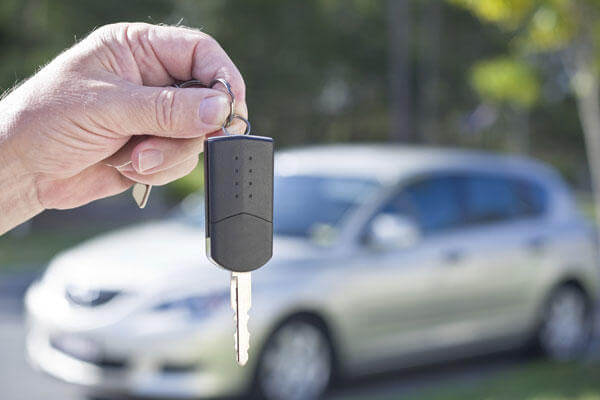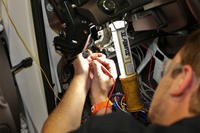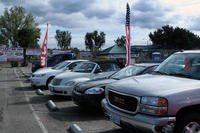How Much Is Your New Car Really Going to Cost?
Don't stop at the sticker price when adding up what you'll pay to own a vehicle.
Can buying a cheaper car actually cost you more in the long run? It might. So if you're torn between two similar models, it pays to research the costs far beyond the sticker price. Many factors, from insurance to gas mileage to financing, ultimately will determine how much you'll pay for that vehicle over the years you own it.
Let's say you're eyeing one sedan that costs $30,000; meanwhile, a similar model you also like is listed at $24,000. You might think the lower-priced car is the better deal. Not so fast. Here's an example of how you actually might shell out more for the lower-priced vehicle.
Adding Up the Cost of Car Ownership Over Five Years*
| New Sedan A | New Sedan B | |
Purchase price (including tax, title and license) |
$30,000 | $24,000 |
| Cash-back incentive | ($3,000) | None |
| Interest | $2,835 ($27,000 financed over 60 months at 4% APR)** | $3,175 ($24,000 financed over 60 months at 5% APR)** |
| Insurance | $800 annually = $4,000 | $1,000 annually = $5,000 |
| Fuel | $2,100 annually = $10,500 (15k miles per year at average 25 mpg and $3.50 per gallon) | $2,386 annually = $11,931 (15K miles per year at average 22 mpg and $3.50 per gallon) |
| Maintenance and repair | $4,000 | $4,500 |
| Resale value after 5 years | ($12,000) | ($10,000) |
| TOTAL COST | $36,335 | $38,606 |
*Examples given are hypothetical illustrations and not an indication of the benefits or features of any USAA product. Sample costs and loans are for illustration purposes only and are not a rate quote, preapproval, or commitment to lend.
**The amount of your loan should be reduced if you trade in your current vehicle.
There's no way to put an exact number on your total costs, but estimating them will help you control your budget for the short term and the long term. And it might change your mind about which model is really right for you.
If you're looking for the best deal, here are several suggestions before you buy:
Search for rebates. Don't settle on a make and model until you check out any special deals that may be offered by the manufacturer or your local dealer. These bargains go by many names — rebates, cash-back incentives or bonus cash — but they all mean "discount" to you. Some automakers have been offering rebates of up to $6,000 on certain models, which should weigh heavily in your decision. Keep in mind that big incentives also may limit your ability to negotiate the price. These deals also can change month to month.
Add up the interest. Along with rebates, dealers and manufacturers also offer special financing incentives on some vehicles. You also might find competitive interest rates on auto loans from outside lenders, such as your bank or credit union.
How much could a low interest rate save you? Let's assume you finance a $20,000 car over 60 months at a 5% annual percentage rate. You'll pay $2,645 in interest. Now, let's say a competing model with the same sticker price offers 2% financing; choose this one, and you'll pay only $1,033 in interest. That's a savings of $1,612 over five years.1
Compare insurance. Insurance costs vary widely depending on your age, location and driving habits, but the type of car you drive matters, too. Typically, insurance companies base their premiums on the experiences of millions of other drivers. So you might pay more to insure a vehicle that has shown to be in accidents more often, costs a lot to repair or is frequently stolen. If you're close to making a decision, call your insurer for a quote. You also can find insurance loss data for hundreds of vehicles at the Insurance Institute for Highway Safety.
Dig into depreciation. Unless you plan to drive your car until the wheels fall off, depreciation is a major consideration in the total cost of your car. Depreciation isn't something you actually pay for; it's about how much you get back when you sell your vehicle. Not all cars depreciate at the same rate. A car with a higher resale value ultimately may cost less because you'll get more cash when you sell it. ALG provides depreciation ratings to help you compare models.
Factor in fuel. Choosing a fuel-sipper over a gas-guzzler can make a huge difference in your long-term costs. According to the U.S. Department of Energy's site fueleconomy.gov, a vehicle that gets 30 mpg will cost $813 less to fuel each year than one that gets 20 mpg (assuming 15,000 miles per year and a fuel cost of $3.25 per gallon). Over five years, the savings grow to $4,650. The site allows you to calculate your own costs and compare the fuel efficiency of various cars.
Don't forget maintenance and repair. Whether you're dealing with routine oil changes, a broken belt or a blown tire, putting money into auto upkeep is inevitable, especially after its warranty expires. How much money depends on the car. Reliability is important, as a car that breaks down more often will cost you more in repairs. And, as a rule of thumb, high-performance sports cars and European luxury models tend to have higher costs because of the specialized knowledge and parts required to maintain them.
If you're concerned about repair costs, consider an extended warranty. These service contracts allow you to pay upfront to offset the cost of covered repairs; the price you pay depends on the vehicle, the extent of the coverage and the plan's deductible.
| Car Options that Pay You Back |
Choosing desirable extras on your next vehicle could boost its resale value and thus lower your long-term cost of ownership. Generally, car experts say the best options are comfort and convenience features that don't get outdated. Tech gadgets, meanwhile, have narrower appeal and may become obsolete quickly. Highest residual values
Lowest residual values
|










